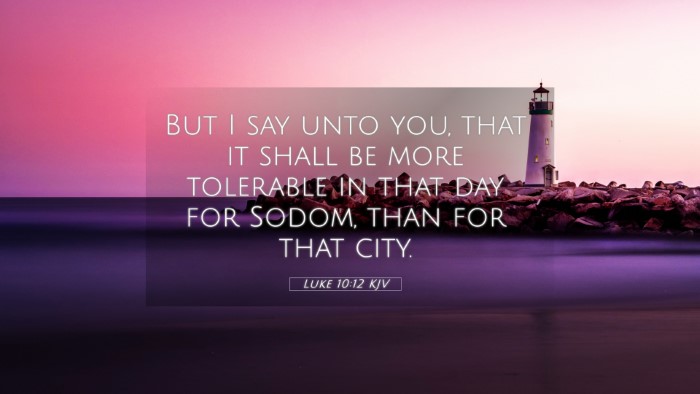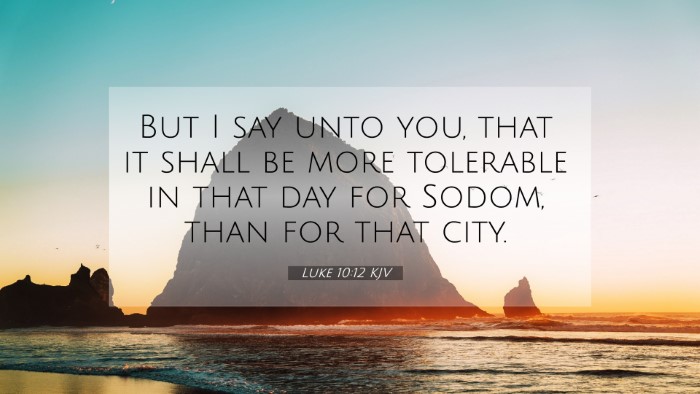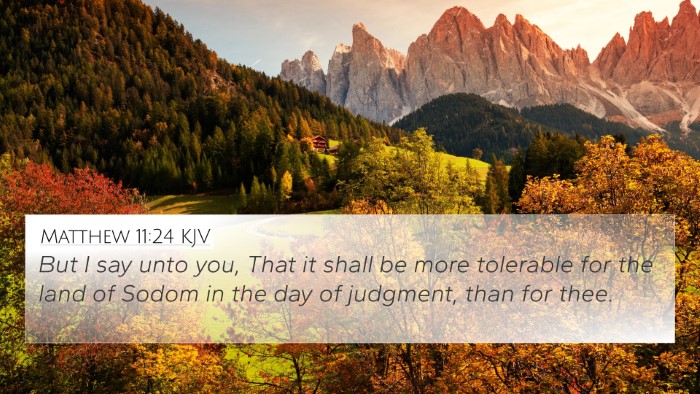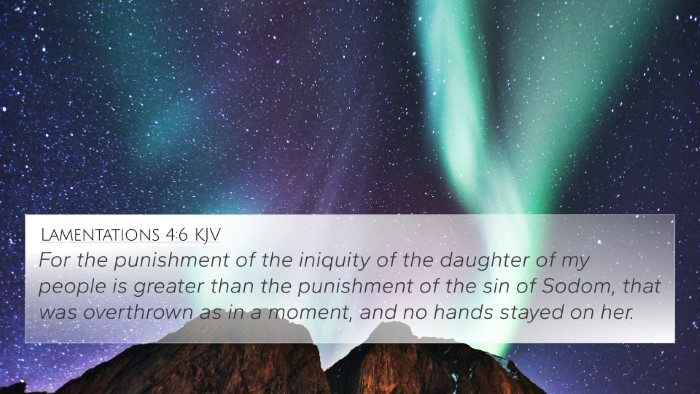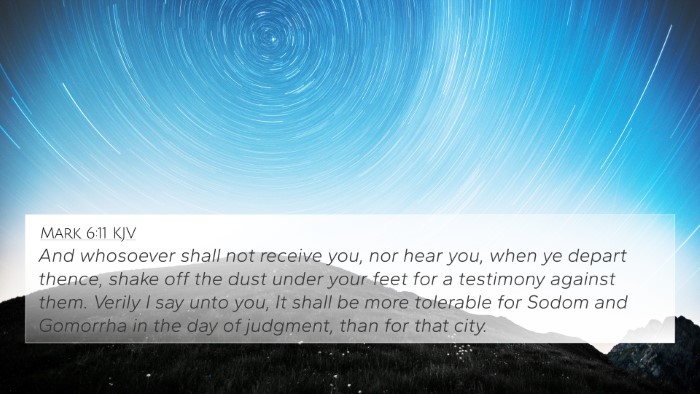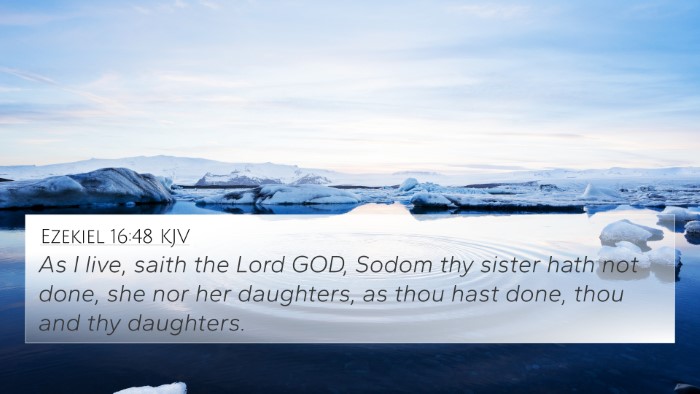Interpretation of Luke 10:12
Luke 10:12 states: "But I say unto you, that it shall be more tolerable in that day for Sodom than for that city." This verse delivers a profound message concerning divine judgment and the consequences faced by unrepentant cities.
Summary of Meaning
Luke 10:12 emphasizes the severity of rejecting the message of the Gospel. Jesus is providing insight into the nature of God's judgment, particularly regarding those who have had the opportunity to know the truth yet choose to ignore or reject it.
Insights from Public Domain Commentaries
-
Matthew Henry:
Matthew Henry elaborates on God's justice, explaining that those cities which reject the Gospel after witnessing Christ's miracles will face a harsher judgment than Sodom, known for its wickedness. He stresses that the greater the light received, the greater the accountability.
-
Albert Barnes:
Barnes provides a contextual background, noting that Sodom's destruction serves as a comparison for cities like Chorazin and Bethsaida that failed to repent despite Jesus's works. He highlights the significance of repentance and emphasizes the eternal consequences of rejecting divine truth.
-
Adam Clarke:
Clarke expands on the notion of mercy and judgment. He expresses that Sodom's sin was immense, but cities that witness the miracles of Christ and still reject His message face a potentially greater condemnation, reflecting on the principle of greater knowledge leading to greater responsibility.
Bible Cross-References
- Matthew 10:15: "Verily I say unto you, It shall be more tolerable for the land of Sodom and Gomorrah in the day of judgment, than for that city."
- Luke 17:29-30: "But the same day that Lot went out of Sodom it rained fire and brimstone from heaven, and destroyed them all." This parallel emphasizes the sudden nature of divine judgment.
- 2 Peter 2:6: "And turning the cities of Sodom and Gomorrah into ashes condemned them with an overthrow, making them an ensample unto those that after should live ungodly." This verse reinforces the lesson for those who disregard God's warnings.
- Revelation 20:11-15: Illustrating the final judgment where all are accountable, this passage highlights the ultimate consequences of rejecting Christ.
- Isaiah 1:10: "Hear the word of the Lord, ye rulers of Sodom; give ear unto the law of our God, ye people of Gomorrah." This connection provides historical context to the wickedness of Sodom.
- Jeremiah 23:14: "I have seen also in the prophets of Jerusalem a horrible thing: they commit adultery, and walk in lies: they strengthen also the hands of evildoers." This speaks to the accountability of those who know the truth yet mislead others.
- Matthew 11:21-24: This parallels the ultimate fate of cities that saw mighty works but did not repent, emphasizing the theme of accountability.
Thematic Connections
Luke 10:12 connects with various Biblical themes concerning judgment, accountability, and the consequences of sin. The fundamental principle of inter-Biblical dialogue is evident as both the Old and New Testaments address the weight of responsibility that comes with revelation.
Tools for Bible Cross-Referencing
To deepen understanding, one can employ several tools for bible cross-referencing:
- Bible Concordance: A comprehensive resource to find keywords and associated verses.
- Bible Cross-Reference Guide: A structured guide that maps cross-references for thematic studies.
- Cross-Reference Bible Study: Techniques on how to engage with multiple scriptures to enhance study sessions.
- Bible Reference Resources: Additional materials to facilitate deeper theological learning.
Conclusion
In summary, Luke 10:12 serves as a solemn reminder of the serious implications of rejecting God's message. The connections established through cross-referencing scriptures, particularly between the themes of judgment and mercy, enrich our understanding of God’s expectations from us. Through diligent study and contemplation, believers are called to reflect on their relationship with God and to heed His message of grace and redemption.

